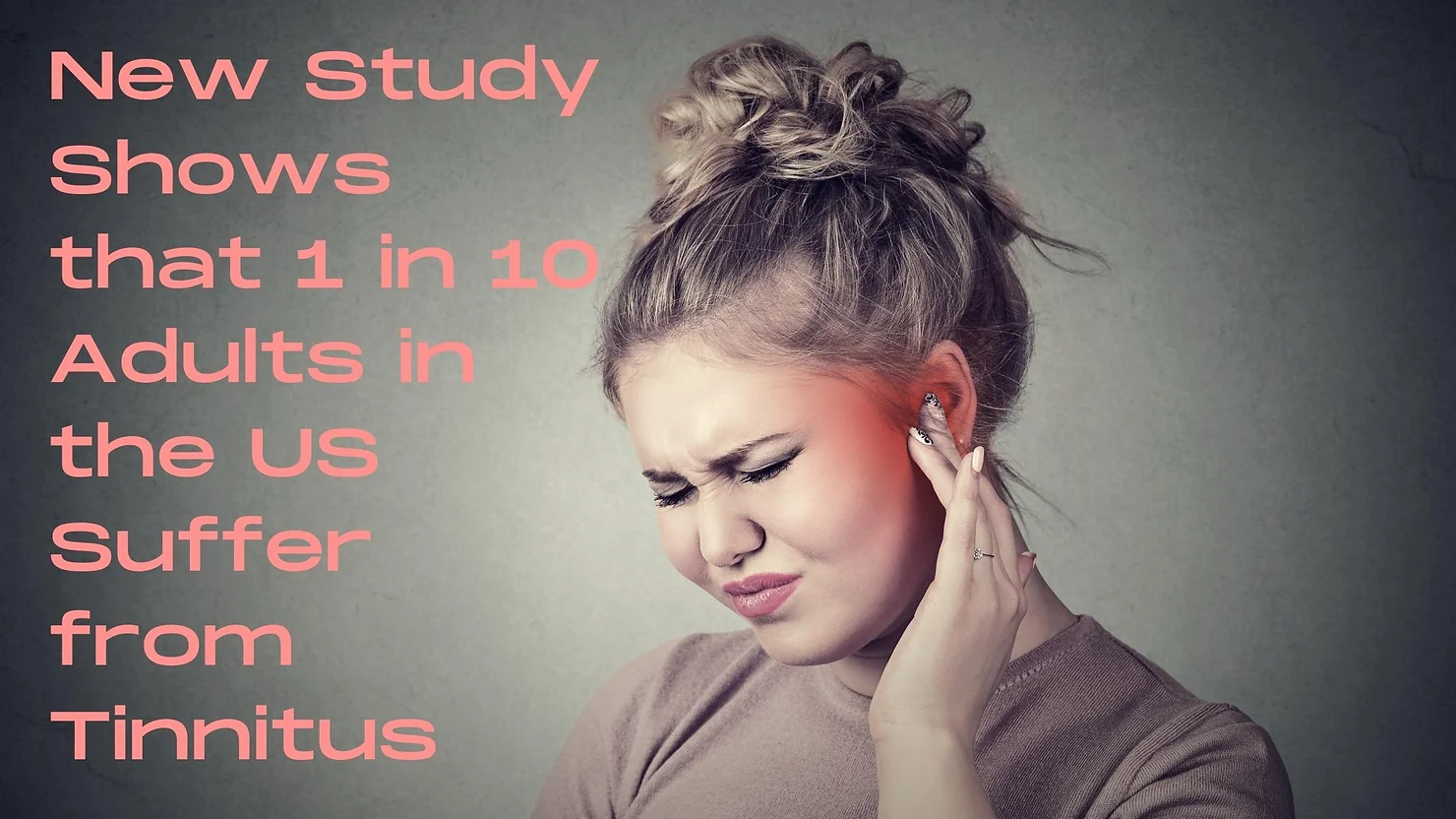
Tinnitus, often referred to as ringing in the ears, is the perception of sound when noise is not actually present. According to the Centers for Disease Control and Prevention (CDC), nearly 20 million people live with chronic tinnitus. Additionally, 2 million people have debilitating tinnitus and 16 million people seek medical attention annually for it.
Tinnitus is not a condition itself but rather, an underlying symptom of a health condition an individual is experiencing. A new study shows that tinnitus is actually more common than we may think so addressing it as soon as it is detected is critical for health and daily wellness.
What is Tinnitus?
Tinnitus describes hearing sound when there is no noise in the external environment. The sounds associated with tinnitus are commonly described as a ringing, buzzing, clicking, or whistling-like noise that can be heard in one or both ears. Tinnitus can be experienced acutely (temporarily) or chronically, having multifaceted effects on daily life. Major ways that tinnitus impacts people include:
-
Strains communication: tinnitus can be mild to profound which reduces a person’s ability to hear and process sound. It can distract from what is being said or prevent people from hearing clearly. This contributes to stress and anxiety while navigating conversations as people have to overextend themselves in trying to hear. It can lead to miscommunication, frustration, and unpleasant interactions.
-
Takes toll on sleep: tinnitus can prevent quality sleep by making it difficult to initiate and maintain sleep. This can lead to people feeling excessively tired, irritable, and experiencing difficulty focusing and completing daily tasks.
-
Heightens stress: strained communication, poor sleep, and the experience of an unpleasant ringing like noise often exacerbates stress. Heightened stress then triggers tinnitus and this loop can be incredibly challenging to deal with.
These effects can worsen the experience of tinnitus which can impact health and wellness in a variety of ways.
New Study on Tinnitus
Tinnitus is likely more common than you think. A recent study published in the Journal of the American Medical Association Otolaryngology-Head & Neck Surgery reveals how pervasive tinnitus is. Researchers at the University of California, Irvine conducted a study that involved assessing tinnitus for 75,764 participants (ages 18 and older). They found that:
-
1 in 10 people (21.4 million people) experience tinnitus
-
27% experienced symptoms for more than 15 years
-
36% experienced tinnitus chronically
-
15% experienced symptoms at least once per day
These significant findings highlight how widespread tinnitus is. You have likely experienced tinnitus that was temporary – after attending a concert, leaving a noisy restaurant, listening to audio on higher volume settings on personal devices etc. Loud noise impacts the hair cells in the inner ear which are responsible for translating soundwaves into electrical signals that are then sent to the brain to be further processed. While seldom experiencing tinnitus after a loud event is not particularly harmful, if you experience tinnitus more frequently, you should have your hearing evaluated.
Treating Tinnitus
Tinnitus is most commonly caused by hearing loss, a permanent condition that reduces one’s capacity to detect and process sound. The Hearing Health Foundation estimates that 90% of tinnitus cases are produced by hearing loss. So treatment for tinnitus really starts with having your hearing assessed. Hearing tests are facilitated by our team of audiologists who are experts in assessing, diagnosing, and treating issues related to hearing and balance.
These exams consist of a noninvasive and painless process that measures hearing capacity in both ears. This identifies any impairment, the degree, and specific type of hearing loss you could be experiencing. With this information, your hearing healthcare provider is able to make recommendations for treatment options that will effectively meet your hearing needs.
The most common treatment for hearing loss is hearing aids. These are electronic devices that are designed to absorb, amplify, and process sound. Providing the ears and brain with ample support, people have greater capacity to hear. This alleviates symptoms like tinnitus and the cumulative toll it tends to take on daily life. In addition to this, treating hearing loss strengthens communication, enriches social life, enhances relationships, and improves overall health!
If you experience tinnitus or have experienced changes in your hearing, schedule your appointment for a hearing test today!
